| Sei in: Cinema e Medioevo ® Indice alfabetico dei film |
The Assassin
(Nie Yinniang)
2015, regia di Hou Hsiao-Hsien
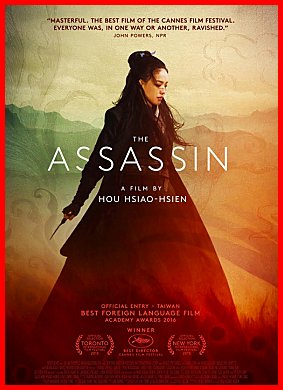
Scheda: Nazione: Taiwan-Cina-Hong Kong-Francia - Produzione: Central Motion Pictures, China Dream Film Culture Industry, Media Asia Films, Sil-Metropole Organisation, SpotFilms, Zhejiang Huace Film & TV - Distribuzione: Movies Inspired, Well Go USA Entertainment, Lumière, Seven Films-Spentzos Film, Shochiku Company, IPA Asia Pacific, StudioCanal - Soggetto (basato sul Nie Yinniang di Pei Xing): Hou Hsiao-Hsien - Sceneggiatura: Hou Hsiao-Hsien, Chu Tien-wen, Hsieh Hai-Meng, Zhong Acheng - Fotografia: Pin Bing Lee - Montaggio: Liao Ching-Song, Huang Chih-Chun - Art Direction: Weng Ding-Yang - Scenografia: Hwarng Wern-Ying - Costumi: Hwarng Wern-Ying - Musiche: Lim Giong - Effetti speciali: Ardi Lee - Formato: Color e B.N., linguaggio mandarino - Durata: 105' (120').
Cast: Satoshi Tsumabuki, Chen Chang, Qi Shu, Shao-Huai Chang, Zhou Yun, Nikki Hsin-Ying Hsieh, Dahong Ni, Ethan Juan, Fang Mei, Fang-yi Sheu, Chun Shih, Mei Yong.
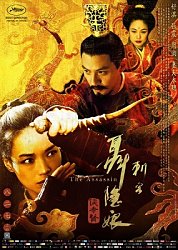
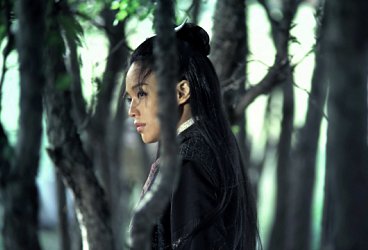
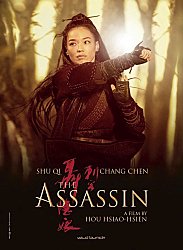
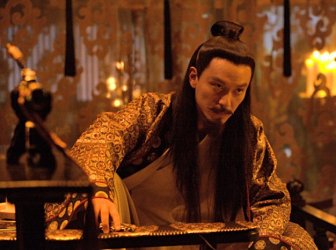
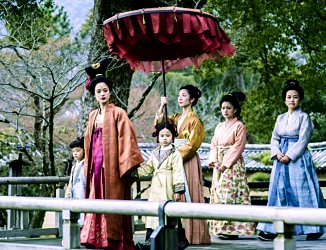
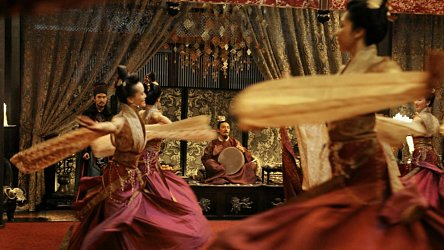
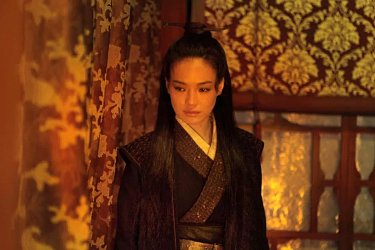
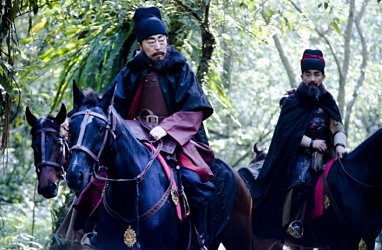
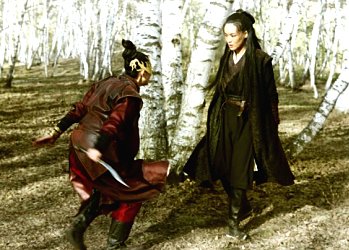
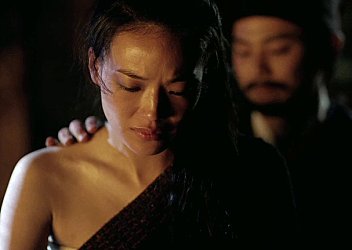
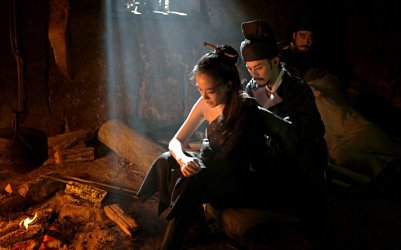
![]() Trama e commenti:
comingsoon.it
- it.wikipedia.org
-stanzedicinema.com
-loudvision.it
-filmtv.it
-3dnews.it
-mymovies.it: «Cina,
IX secolo. Sotto la dinastia Tang il Paese vive e prospera. A minacciare la sua
età d'oro si adoperano gli ambiziosi e corrotti governatori della provincia.
L'"ordine degli assassini" è incaricato di eliminarli. Nelle sue fila serve e
combatte Nie Yinniang, abile con la spada e sotto la chioma nera di inchiostro
lucente. Rientrata nella sua città e nella sua provincia, dopo l'apprendistato
marziale e un esilio lungo tredici anni, Nie Yinniang deve uccidere Tian Ji'an,
governatore dissidente della provincia di Weibo. Cugino e sposo a cui fu
promessa e poi negata, Tian Ji'an è l'oggetto del suo desiderio. Amato e mai
dimenticato, Nie Yinniang lo avvicina e lo sfida senza riuscire ad affondare il
fendente. Ostinata a seguire le ragioni del cuore e a vincere quelle della
spada, Nie Yinniang abdicherà al suo mandato, congedandosi dall'ordine. Solo i
giganti ritornano così. Sono passati otto anni da Il viaggio del palloncino
rosso e improvvisamente Hou Hsiao-Hsien è riapparso, spiazzando (ancora) col
suo cinema vibrante di bellezza e libertà. Regista taiwanese emerso dagli anni
Ottanta, autore personale nella sua ricerca espressiva, maestro di immagini e
parole, poeta di un'isola dolorosamente separata dalla madre patria cinese, Hou
Hsiao-Hsien ha scritto e realizzato pagine sentimentali e politiche di respiro
universale. A consolare la sua assenza e a comprendere quanto sia mancato,
bastano i piani in bianco e nero del prologo di The Assassin. Creatore di
forme e dispensatore di bellezza, l'autore ricomincia da un genere (quasi)
obbligato per i realizzatori asiatici. Folgorante e mistico, The Assassin
è un 'melodramma di spada', un wuxiapian colpevole di cuore e alla ricerca di
una pace interiore, interpretato da un'eroina marziale e accomodato nella Cina
antica da uno sguardo colto, delicato e introverso. Avviato in bianco e nero,
dentro un formato 1.85, The Assassin scivola nel colore, nei rossi e
neri, nel mistero e nel laconismo, moltiplica le ellissi, perde il filo nelle
dispute politiche e amministrative, lo ritrova nei sentimenti ardenti e negli
sguardi incendiati, cattura l'essere dentro riti codificati, costringe i corpi
nelle stoffe e nei cerimoniali, affonda nei campi che 'guardano' lontano e
testimoniano un presente remoto. ...» (Marzia Gandolfi).
Trama e commenti:
comingsoon.it
- it.wikipedia.org
-stanzedicinema.com
-loudvision.it
-filmtv.it
-3dnews.it
-mymovies.it: «Cina,
IX secolo. Sotto la dinastia Tang il Paese vive e prospera. A minacciare la sua
età d'oro si adoperano gli ambiziosi e corrotti governatori della provincia.
L'"ordine degli assassini" è incaricato di eliminarli. Nelle sue fila serve e
combatte Nie Yinniang, abile con la spada e sotto la chioma nera di inchiostro
lucente. Rientrata nella sua città e nella sua provincia, dopo l'apprendistato
marziale e un esilio lungo tredici anni, Nie Yinniang deve uccidere Tian Ji'an,
governatore dissidente della provincia di Weibo. Cugino e sposo a cui fu
promessa e poi negata, Tian Ji'an è l'oggetto del suo desiderio. Amato e mai
dimenticato, Nie Yinniang lo avvicina e lo sfida senza riuscire ad affondare il
fendente. Ostinata a seguire le ragioni del cuore e a vincere quelle della
spada, Nie Yinniang abdicherà al suo mandato, congedandosi dall'ordine. Solo i
giganti ritornano così. Sono passati otto anni da Il viaggio del palloncino
rosso e improvvisamente Hou Hsiao-Hsien è riapparso, spiazzando (ancora) col
suo cinema vibrante di bellezza e libertà. Regista taiwanese emerso dagli anni
Ottanta, autore personale nella sua ricerca espressiva, maestro di immagini e
parole, poeta di un'isola dolorosamente separata dalla madre patria cinese, Hou
Hsiao-Hsien ha scritto e realizzato pagine sentimentali e politiche di respiro
universale. A consolare la sua assenza e a comprendere quanto sia mancato,
bastano i piani in bianco e nero del prologo di The Assassin. Creatore di
forme e dispensatore di bellezza, l'autore ricomincia da un genere (quasi)
obbligato per i realizzatori asiatici. Folgorante e mistico, The Assassin
è un 'melodramma di spada', un wuxiapian colpevole di cuore e alla ricerca di
una pace interiore, interpretato da un'eroina marziale e accomodato nella Cina
antica da uno sguardo colto, delicato e introverso. Avviato in bianco e nero,
dentro un formato 1.85, The Assassin scivola nel colore, nei rossi e
neri, nel mistero e nel laconismo, moltiplica le ellissi, perde il filo nelle
dispute politiche e amministrative, lo ritrova nei sentimenti ardenti e negli
sguardi incendiati, cattura l'essere dentro riti codificati, costringe i corpi
nelle stoffe e nei cerimoniali, affonda nei campi che 'guardano' lontano e
testimoniano un presente remoto. ...» (Marzia Gandolfi).
![]() Plot Summary, Synopsis, Review: IMDb
-
en.wikipedia.org -
telegraph.co.uk -
rogerebert.com -
rottentomatoes.com -
allmovie.com -
metacritic.com -
allocine.fr -
filmcomment.com:
«An unparalleled reservoir of cultural memory, the wuxia genre has
deep roots in ancient Chinese history. Fueled by fanciful imagery of Heaven and
Hell, these stories about legendary assassins who once roamed the country unfold
against the backdrop of China’s vastly shifting political climes, bearing an
otherworldliness anchored in a certain social realism. Ever pervasive in poetry,
novellas, and serials, they have stirred the imagination of filmmakers for as
long as the medium has existed in China. The wuxia film—combining
elements of music, dance, literature, and martial arts—is a total art form that
belongs wholly to Chinese tradition. By now it’s almost a rite of passage for a
major filmmaker from Hong Kong, Taiwan, or Mainland China to make one, from Wong
Kar Wai to Jia Zhang-ke. Once praised by Jia as “the genius narrator passing
down the memories of a nation through films,” Hou Hsiao-hsien, at age 68, has
made his first wuxia film. Its long and arduous production (adhering to a $15
million budget) began shortly after Flight of the Red Balloon was
released in 2008, leaving the longest gap in the Taiwanese filmmaker’s career
since his first feature in 1980. Because it had originally been scheduled to be
completed last year and timed to an international touring retrospective, the
anticipation for its Cannes premiere was all the more ardent.
Adapted from the Tang Dynasty short story Nie Yinniang, The Assassin
is about a princess (Shu Qi, in a piercing performance) who was abducted from
her Imperial family by a nun in exile and trained to become a vigilante killer
for the sole purpose of murdering corrupt politicians. As punishment for failing
one of her assignments, the nun (Zhou Yun) sends her home to kill her beloved
cousin (Chang Chen, who starred opposite Shu Qi in 2005’s Three Times),
now a prominent military leader. Scenes of breathtaking, expansive, and
meditative stillness alternate with swift, cutting sword-fighting action. With
his uncanny visual and aural ability to draw the past into the present, Hou
instills scenes set in the 9th century with a haunted realism. Whereas the
opiate-tinged beauty of the Qing Dynasty pleasure quarters in The Flowers of
Shanghai (98) was tempered by formal strictures, here Hou lets
cinematographer Mark Lee Ping Bin’s indelible long takes linger and steep us in
the Imperial grandeur and sublime imagery. His third film to reckon with Chinese
history (The Puppetmaster was the first film he shot in Mainland China),
The Assassin is also his most monumental in scale and breadth, and a poised
distillation of his aesthetic codes. Delving into themes of captivity and
freedom, Hou finds a parallel between his own contrasting visual
strategies—defined by rigorous formal planning and on-set improvisation—and the
plight of these characters trapped between their piety and unrequited emotional
desire. ...» (Aliza Ma).
Plot Summary, Synopsis, Review: IMDb
-
en.wikipedia.org -
telegraph.co.uk -
rogerebert.com -
rottentomatoes.com -
allmovie.com -
metacritic.com -
allocine.fr -
filmcomment.com:
«An unparalleled reservoir of cultural memory, the wuxia genre has
deep roots in ancient Chinese history. Fueled by fanciful imagery of Heaven and
Hell, these stories about legendary assassins who once roamed the country unfold
against the backdrop of China’s vastly shifting political climes, bearing an
otherworldliness anchored in a certain social realism. Ever pervasive in poetry,
novellas, and serials, they have stirred the imagination of filmmakers for as
long as the medium has existed in China. The wuxia film—combining
elements of music, dance, literature, and martial arts—is a total art form that
belongs wholly to Chinese tradition. By now it’s almost a rite of passage for a
major filmmaker from Hong Kong, Taiwan, or Mainland China to make one, from Wong
Kar Wai to Jia Zhang-ke. Once praised by Jia as “the genius narrator passing
down the memories of a nation through films,” Hou Hsiao-hsien, at age 68, has
made his first wuxia film. Its long and arduous production (adhering to a $15
million budget) began shortly after Flight of the Red Balloon was
released in 2008, leaving the longest gap in the Taiwanese filmmaker’s career
since his first feature in 1980. Because it had originally been scheduled to be
completed last year and timed to an international touring retrospective, the
anticipation for its Cannes premiere was all the more ardent.
Adapted from the Tang Dynasty short story Nie Yinniang, The Assassin
is about a princess (Shu Qi, in a piercing performance) who was abducted from
her Imperial family by a nun in exile and trained to become a vigilante killer
for the sole purpose of murdering corrupt politicians. As punishment for failing
one of her assignments, the nun (Zhou Yun) sends her home to kill her beloved
cousin (Chang Chen, who starred opposite Shu Qi in 2005’s Three Times),
now a prominent military leader. Scenes of breathtaking, expansive, and
meditative stillness alternate with swift, cutting sword-fighting action. With
his uncanny visual and aural ability to draw the past into the present, Hou
instills scenes set in the 9th century with a haunted realism. Whereas the
opiate-tinged beauty of the Qing Dynasty pleasure quarters in The Flowers of
Shanghai (98) was tempered by formal strictures, here Hou lets
cinematographer Mark Lee Ping Bin’s indelible long takes linger and steep us in
the Imperial grandeur and sublime imagery. His third film to reckon with Chinese
history (The Puppetmaster was the first film he shot in Mainland China),
The Assassin is also his most monumental in scale and breadth, and a poised
distillation of his aesthetic codes. Delving into themes of captivity and
freedom, Hou finds a parallel between his own contrasting visual
strategies—defined by rigorous formal planning and on-set improvisation—and the
plight of these characters trapped between their piety and unrequited emotional
desire. ...» (Aliza Ma).